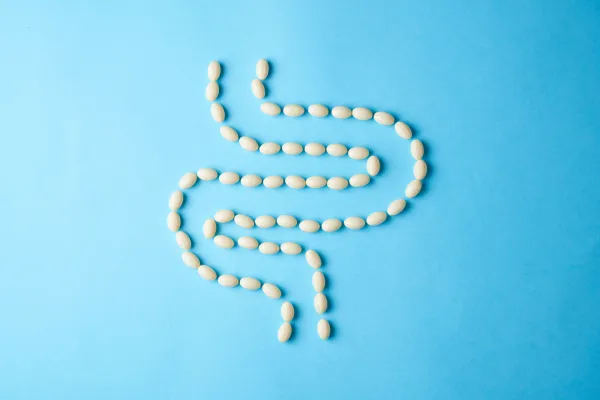
Over-Sanitizing? Your Gut and Immune System Aren’t Loving It
We’ve been conditioned to disinfect everything - especially after, ya tu sabes. It rhymes with morbid. We sanitize our hands, phones, groceries, even the air sometimes. Pero here’s the thing... that constant sterilizing? It can start to backfire, especially when it comes to your immune system and microbiome.
Let’s talk about what’s really happening inside your body when we over-sanitize.

What’s the microbiome, and why should you care?
Your microbiome is a complex, living ecosystem made up of bacteria, fungi, and even viruses that live on your skin, in your gut, and throughout your body.
Pero esto no es “gross” or dangerous, these microbes help your body do the most important jobs:
Train your immune system
Reduce inflammation
Protect against harmful bugs
Support digestion, mood, and metabolism
They’re like the community elders of your internal world—full of wisdom, keeping things in balance.
So what’s the problem with over-sanitizing?
When we overuse sanitizers—especially antibacterial soaps or high-alcohol formulas—we don’t just kill the “bad” bacteria. We also damage the beneficial microbes that keep our body systems running smoothly.
And when that inner ecosystem gets thrown off? It can lead to:
Weakened immunity
More inflammation
Higher risk of allergies or autoimmune flares
Gut issues and skin flare-ups
There’s even a term for it—**the hygiene hypothesis**—which suggests that too much sanitizing and not enough microbial exposure can leave the immune system confused and more reactive over time.
Signs your microbiome might be off
If you’ve been dealing with things like:
Catching every little bug that goes around
Bloating, gas, constipation, or diarrhea
Eczema, rashes, or dry skin flare-ups
New food sensitivities or seasonal allergies
Low energy or brain fog
... your microbes might be waving a red flag.
How to protect your microbiome (and still stay clean)
This isn’t about throwing away your soap—hygiene still matters. It’s about using it intentionally, not fearfully.
Choose gentle over harsh
Use plain soap and warm water. Skip the antibacterial stuff (like triclosan) unless it’s truly necessary.
Use sanitizer when it makes sense
Save it for when you’re out and can’t wash—like the airport or public restrooms. Using it 20 times a day at home? Not needed.
Eat for your gut
Focus on fiber-rich foods (vegetables, fruits, beans, nuts, seeds) and include fermented options like yogurt, kimchi, or sauerkraut—yes, even us Latinas can build gut-friendly platos.
Touch the earth
Spend time outside. Walk barefoot on the grass, garden, play with your dog. These simple moments help your body reconnect to nature’s microbial diversity.
Consider probiotics—mindfully
If you’ve had a lot of antibiotics or sanitizer use, the right probiotic might help. Not all are created equal, so work with someone who can guide you on what your body actually needs.
When it’s time to test (and stop guessing)
If you’re dealing with persistent fatigue, skin issues, gut trouble, or just not feeling like yourself, testing can give us real answers.
In my practice, I often run:
Stool tests** to see which bacteria are thriving—or missing
Secretory IgA** to check gut immune health
Food sensitivity panels or zonulin** for signs of leaky gut
Micronutrient tests** to uncover hidden deficiencies
From there, we co-create a plan that supports you—without extremes, without shame, and without one-size-fits-all protocols.
You don’t have to live in fear of germs though
Sanitizers have their place. But when we overuse them—especially out of fear—we disconnect from our own body’s wisdom.
Supporting your microbiome means supporting your whole self. It’s a quiet, powerful act of care. And it’s one of the ways we begin to reclaim balance in a world that often asks us to override our intuition.
If you’re feeling off, fatigued, inflamed, or disconnected—you’re not broken. You’re just out of balance. And that can be restored.
I’m here when you’re ready. Let’s get you back in rhythm.
Want to know if your microbiome might be out of balance? Book a free Holistix call by clicking HERE.
Ready to work with a coach who listens to you* and your body? Let’s chat.
Curious about testing? I can walk you through which ones are actually worth it.
Gracias por staying to the end! I hope this helps clear some things up about our precious biome.
Best,
Dr. Alma
References
Bloomfield SF, Stanwell-Smith R, Crevel RW, Pickup J. Too clean, or not too clean: the hygiene hypothesis and home hygiene. Clin Exp Allergy. 2006 Apr;36(4):402-25. doi: 10.1111/j.1365-2222.2006.02463.x. PMID: 16630145; PMCID: PMC1448690.
Rivera-Amill V. The Human Microbiome and the Immune System: An Ever Evolving Understanding. J Clin Cell Immunol. 2014 Dec;5(6):e114. doi: 10.4172/2155-9899.1000e114. Epub 2014 Nov 5. PMID: 27088046; PMCID: PMC4831629.
Rocha LA, Ferreira de Almeida E Borges L, Gontijo Filho PP. Changes in hands microbiota associated with skin damage because of hand hygiene procedures on the health care workers. Am J Infect Control. 2009 Mar;37(2):155-9. doi: 10.1016/j.ajic.2008.04.251. PMID: 19249642.
Haahtela T, Holgate S, Pawankar R, Akdis CA, Benjaponpitak S, Caraballo L, Demain J, Portnoy J, von Hertzen L; WAO Special Committee on Climate Change and Biodiversity. The biodiversity hypothesis and allergic disease: world allergy organization position statement. World Allergy Organ J. 2013 Jan 31;6(1):3. doi: 10.1186/1939-4551-6-3. PMID: 23663440; PMCID: PMC3646540.
